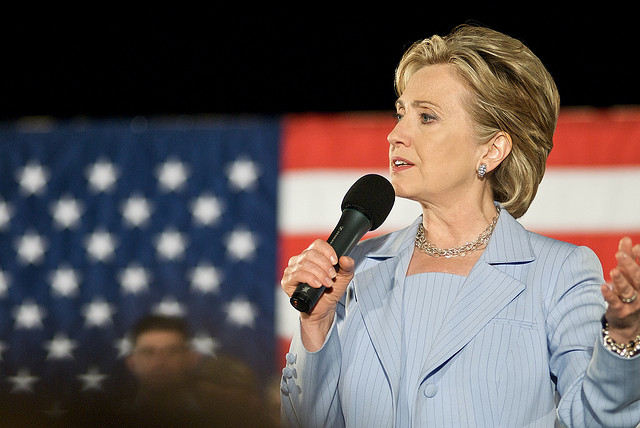While the blood has only recently been washed from the streets of Paris, where jihadists affiliated with ISIS killed at least 129 innocent civilians on 13 November, the attacks are already having an impact on US domestic politics and the 2016 presidential election.
Global media attention quickly zoomed in on a statement President Obama made during an interview with ABC television just a few hours before the tragedy had occurred. In the interview, he said that the US had ‘contained’ ISIS from taking more territory.
And while this may be factually correct with regard to the land area under ISIS control in Syria and Iraq, ISIS certainly hasn’t been contained in its ability to execute deadly acts beyond its ‘state’. This week Moscow confirmed what ISIS had already claimed responsibility for—that the Russian airliner that crashed in the Sinai some two weeks ago, killing 224 people, was the result of an act of terrorism.
Even before the Paris carnage, President Obama’s standing in the polls regarding his handling of the fight against ISIS was poor. According to a recent CBS News/New York Times poll, only 31% of Americans approved of Obama’s actions in combating ISIS. The same poll also found that almost three-quarters of Americans (including 63% of Democrats and 83% of Republicans) thought things were going badly for the US in its fight against the terrorists.
The President’s performance at a press conference on 16 November at the end of the G20 meeting in Turkey didn’t help matters. In his lengthy response to many questions, he was defensive, at times impatient, appeared bored and generally unpersuasive. He stressed that there would be no change to the US approach but an intensification of the present strategy, one that ‘ultimately is going to work’. No one was convinced.
Needless to say, all this has been grist for the Republican Party mill and its drive to demonstrate Obama’s foreign policy weaknesses.
All this has put the Democratic front runner, Hillary Clinton, in a bit of a bind. She has been stressing—not surprisingly, given her four year stint as Secretary of State under Obama’s first administration—her foreign policy expertise. However, not everything has gone so well on that front, and she can’t completely shirk responsibility for some of the subsequent failures. Accordingly, and not so surprisingly, she’s been an Obama loyalist à la carte, choosing the good bits and taking a different policy position as it suits her and assists her presidential bid.
At the Democrats’ second presidential debate the day after the Paris attacks, Clinton stressed in a non-subtle fashion that ISIS ‘cannot be contained, it must be defeated’. She has also recommended on several occasions the quite sensible suggestion of imposing a no-fly-zone over a safe haven area in northern Syria. This was once again rejected at Obama’s press conference, as unworkable and too risky.
Meanwhile, in the Republican camp, there has been a lot of huffing and puffing, but very few concrete, workable ideas on how to resolve the Syrian mess and defeat ISIS. Only Lindsay Graham, one of the dozen remaining Republican presidential candidates, has suggested putting 10,000 US troops on the ground, but no one is taking this idea too seriously given that he has no chance of winning the Republican nomination.
Instead, the Republicans have focused on the issue of allowing Syrian refugees into the country. This has become a very hot topic indeed in light of unconfirmed reports that one of the Paris terrorists may have been a refugee from Syria who recently made his way into Europe hidden among the thousands of legitimate refugees knocking at Europe’s door.
The Republican presidential candidates have fallen over each other over who can be most hard-line on this issue. Ted Cruz, a Senator from Texas, insisted that only Christians from Syria should be accepted, with Jeb Bush echoing those sentiments. However, Marco Rubio, a Senator from Florida and the son of Cuban migrants, went the furthest when he suggested that no one from Syria should be accepted. However, and despite the fact that it’s not in their gift, Republican governors have really been leading the pack on this one, with 23 of them declaring that they wouldn’t accept any Syrian refugees in their state.
In the meantime, there have been plenty of retired generals lining up at the television networks to give their advice as to what needs to be done to win the war against ISIS. And many of them have given some very sensible advice. None of them are advocating the deployment of US ground troops; instead they’re recommending the need for regional Arab countries’ to participate militarily in the fight. Kurds and local Arab militias, however effective they may be, won’t be sufficient. And US-led air strikes will only go so far.
But is anyone listening inside the Washington beltway?


